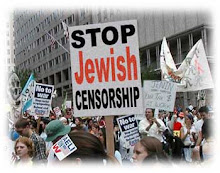 Qatar doesn't have diplomatic relations with Israel. But it did, since 1996, have an Israeli trade mission in Qatar, headed by two Israeli diplomats. In January, Qatar closed the mission to protest Israel's 22-day war on Gaza, which claimed the lives of 1,342 Palestinians and 13 Israelis. (Oman opened a trade mission with Israel in 1996, too, but that one closed in 2000, following the start of the second Palestinian Intifada, or uprising.)
Qatar doesn't have diplomatic relations with Israel. But it did, since 1996, have an Israeli trade mission in Qatar, headed by two Israeli diplomats. In January, Qatar closed the mission to protest Israel's 22-day war on Gaza, which claimed the lives of 1,342 Palestinians and 13 Israelis. (Oman opened a trade mission with Israel in 1996, too, but that one closed in 2000, following the start of the second Palestinian Intifada, or uprising.)In retaliation, Israel this week announced that it would restrict the work of Al-Jazeera reporters in Israel. Al-Jazeera is the Qatar-based satellite news channel. During Israel's war on Hamas the channel focused on the humanitarian aspect of the war, highlighting, sometimes in graphic footage and to the displeasure of Israeli authorities, the war's catastrophic Palestinian toll. What that means, the BBC reports, is that the "work visas of some al-Jazeera employees based in Israel will not be renewed," while "Al-Jazeera's journalists will have limited access to Israeli news conferences and briefings."
Retaliation or Censorship?
There's not much logic or sense in Israel's reaction, which is what this is: a reactionary clamp-down to appease overheated right-wing voices in the Israeli press that want al-Jazeera silenced. ("For every minute of airtime featuring an Israeli spokesperson presenting Israel’s positions," Mordechai Kedar complained last month, "the network airs long hours of horrific sights from the Palestinian side, including close-ups of the dead and wounded, and of crying and suffering Palestinians. Meanwhile, reports of attacks on Israel are normally covered briefly and in a sterile manner, with no proportion to the descriptions of what is happening in Gaza." Never mind that while Kedar was playing media critic, real lives were, yes, disproportionately being killed and maimed in Gaza.)
The reaction is also a way to give the ominously sounding Israeli "national information directorate" office, formed last year, something to do. The new office is part of the prime minister's operations.
Israeli Point of View More Represented Than Palestinians’
Ironically, the Directorate believes it was doing its job so well during the Gaza war that the Israeli point of view was, in fact (anc contrary to Kedar's limited assumptions), disproportionately represented. "An Israeli foreign ministry assessment of eight hours of coverage across international broadcast media reported that Israeli representatives got 58 minutes of airtime while the Palestinians got only 19 minutes," the Guardian reported last month (one day before Kedar published his column). "Speaking for the Israeli military, Major Avital Leibovich said: 'Quite a few outlets are very favourable to Israel, namely by showing [it] suffering ... I am sure it is a result of the new co-ordination.'"
Al-Jazeera, in other words, was barely leveling the balance the other way. That perspective will now be restricted, possibly shut down. Israel prides itself on being an open society where all voices are heard. The boast is often justified: The Israeli press is certainly more interesting, more daring, more uninhibited, and far less juvenile than the American press when it comes to debating the Palestinian-Israeli conflict openly and honestly. And in relation to the Arab press, there's no comparison. But the Arab press isn't the standard. Nor, for that matter, should there be a shower of laurels on the Israeli press for doing what should be done regarding the Palestinian-Israeli conflict. Open and honest discussions are the minimum, not the ideal.
Israel’s Ban on Reporters During Gaza War
And the Israeli military's ban on reporters in Gaza during the recent war blighted those boasts about a free press and caused reporters to do exactly what Israel didn't want them to do: rely on second-hand reports and the Arab press rather than their own objective reporting. Hence Al-Jazeera's seeming disproportionate effect on perceptions. Israel fostered it. (Not fir the first time, Israel indulged its compulsion for encouraging the opposite of good sense. Expediency has its price.)
Qatar’s Provocation
Qatar isn't innocent. As Haaretz reports, "An emergency summit convened in the Qatari capital of Doha during the Gaza operation included Iranian President Mahmoud Ahmadinejad, Hamas politburo chief Khaled Meshal, Palestinian Islamic Jihad head Ramadan Shallah and Ahmed Jibril, leader of the Popular Front for the Liberation of Palestine's General Command." Hours after the meeting, Qatar cut its ties with Jerusalem. Several hours after the summit Hamad bin Jassim, who serves as both Qatar's prime minister and foreign minister, held a press conference in which he announced his government would be cutting ties with Jerusalem. Bin Jassim had previously enjoyed a working relationship with Israeli officials, including Foreign Minister Tzipi Livni.








Aucun commentaire:
Enregistrer un commentaire